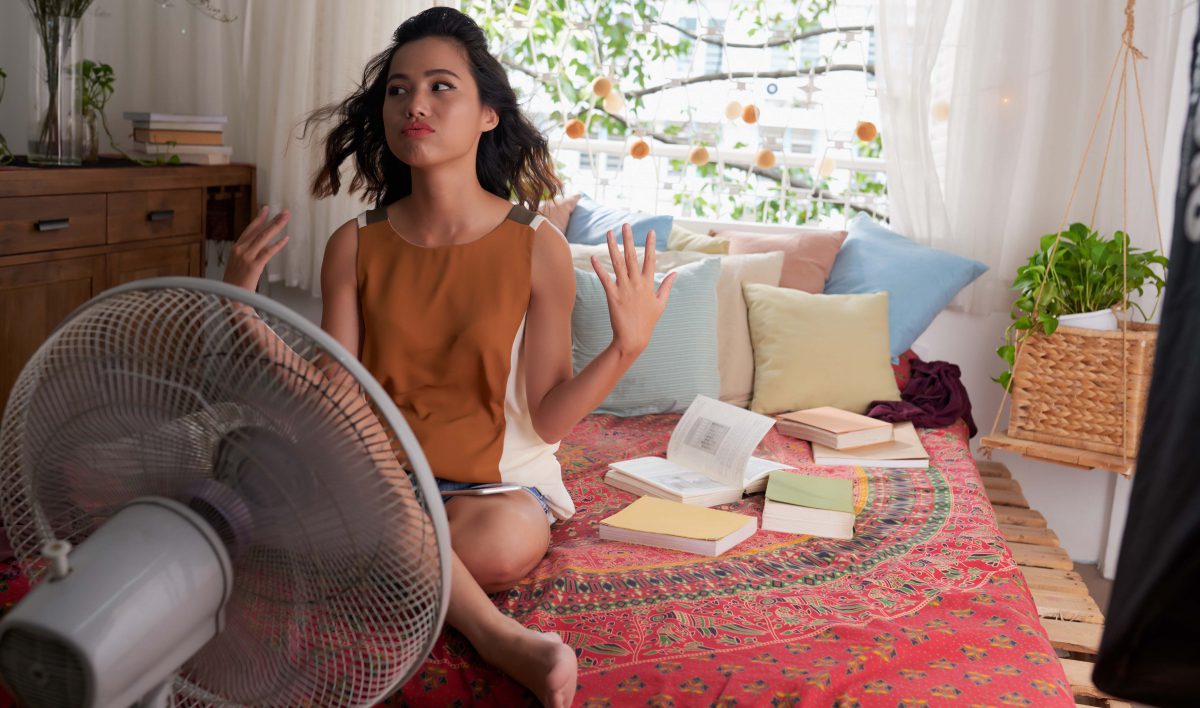Home » Featured Articles » Summer skin – sun smart tips to deal with acne
Summer skin – sun smart tips to deal with acne

It’s that time of year again – hot days, warm nights and holidays on the upside; mozzies, sweat and sunburn on the downside! Dealing with acne in the hotter months can also be a bit tricky but here’s some simple tips to save your skin and keep your acne in check this summer.
Is your treatment making you sensitive?
We’re talking sun sensitive here! Some acne treatments make your skin more prone to the harmful effects of the sun so protection is even more important for people with acne.
Retinoid creams and gels such as adapalene (Differin), tretinoin (Retin A, Re Trieve, Stieve-A) and the two-in-one Epiduo products as well as isotretinoin (Oratane, Roaccutane) make the skin more sun sensitive.
Brisbane dermatologist and All About Acne member, Dr Brian De’Ambrosis says these treatments increase sensitivity to ultraviolet light, particularly ultraviolet A (UVA) which is most involved in photo ageing – lines, saggy skin, blotchy marks.
“It’s another reason to ensure you’re adequately protected from the sun,” he adds.
People with acne scars also need to take extra care. Without good UVA protection the scars can rapidly lose their elasticity and collagen support making you look older than you really are.
Be picky about protection
There are over 900 sunscreen options in Australia so choosing the right one can be confusing.
Everyone should look out for products that have an ‘AUST L’ number on the label. This means they have been assessed and approved by the Therapeutic Goods Administration.
“People with acne are often worried that sunscreen is going make their acne worse, and it can, if you select those that are thick and block pores,” explains Dr De’Ambrosis.
“There are several brands of sunscreens that have been specifically formulated for acne prone skin so you get the vital protection without added pimples.”
Gels, liquids and sprays for oily, acne-prone skin were often recommended over creams but new ingredients have led to the formulation of creams that are lighter than products using older technologies.
Newer ingredients include mexoryl SX and XL, bisoctrizole and bemotrizinol. These ingredients are often contained in popular brands that you can easily pick in a pharmacy. Some brands contain more than one of these ingredients and others state they have been specifically designed for oily, acne-prone skin such as La Roche-Posay Anthelios XL Anti-Shine Dry Touch SPF50+ sunscreen.
“Importantly, the new ingredients provide good sun protection and have also passed a very high level of safety testing,” says Dr De’Ambrosis.
Benefits of the latest sunscreens include:
- Won’t clog pores (non-comedogenic) – the number one sunscreen for 2019, according to the independent organisation US Consumer Reportshappens to be non-comedogenic!
- Unlikely to cause skin allergy (hypo-allergenic)
- Non-irritating
- Provide longer lasting protection
- Provide very good UVA and UVB protection
The sun is not your friend
“Patients will often tell me their acne is better in summer. Sun exposure can either improve or aggravate acne dependent on the individual but the long-term risks of sun exposure far outweigh any short-term benefits,” says Dr De’Ambrosis.
Australia has one of the highest rates of skin cancer in the world with 13,694 people diagnosed with melanoma (the most dangerous form of skin cancer) in 2015 according to the Cancer Council.
New research from QIMR Berghofer has found that 22 different genes help to determine how much sun exposure a person needs before developing melanoma.
“A tan sometimes camouflages acne and also appears to reduce acne redness but these are short-term improvements which aren’t worth the risk of developing something as life-changing as skin cancer,” he added.
Keep up the moisturiser
If you’re lucky enough to be in air-conditioned comfort or chilling out at the beach, remember you’re also exposing your skin to dryness.
“If your skin is dry, continue using a moisturiser in summer but consider swapping out the heavier one you may have been using in cooler months for a lighter option. It’s important to look after your skin and you’re more likely to do that if you feel comfortable too,” suggests Dr De’Ambrosis.
‘Dab’ away the sweat
Whether you’re on a packed train with no air con or you’ve just walked five minutes to uni in 30 degree heat, sweating it out is part of summer.
“Rubbing your skin to remove the sweat can aggravate it so instead, dab or pat it with something clean, not your sweaty T-shirt, that is probably full of dead skin cells, bacteria and oil from your skin!” says Dr De’Ambrosis. “Try not to touch your face as this can flare up your acne.”
Go natural
When the summer heat is on, it’s a good time to think about taking the make-up off.
“Letting your skin breathe any time of year is important,” recommends Dr De’Ambrosis.
“A lightweight concealer with sunscreen may be enough if you just want to cover some of your acne but if you are using make-up during the day, consider those with built-in sun protection. Just remember to remove any make-up before going to bed.”
There are also options of tinted sunscreens which provide tinted sheer coverage with the benefits of sun protection.
For more information on managing acne in summer, check out:
All About Acne’s Guide to Summer Skin.
